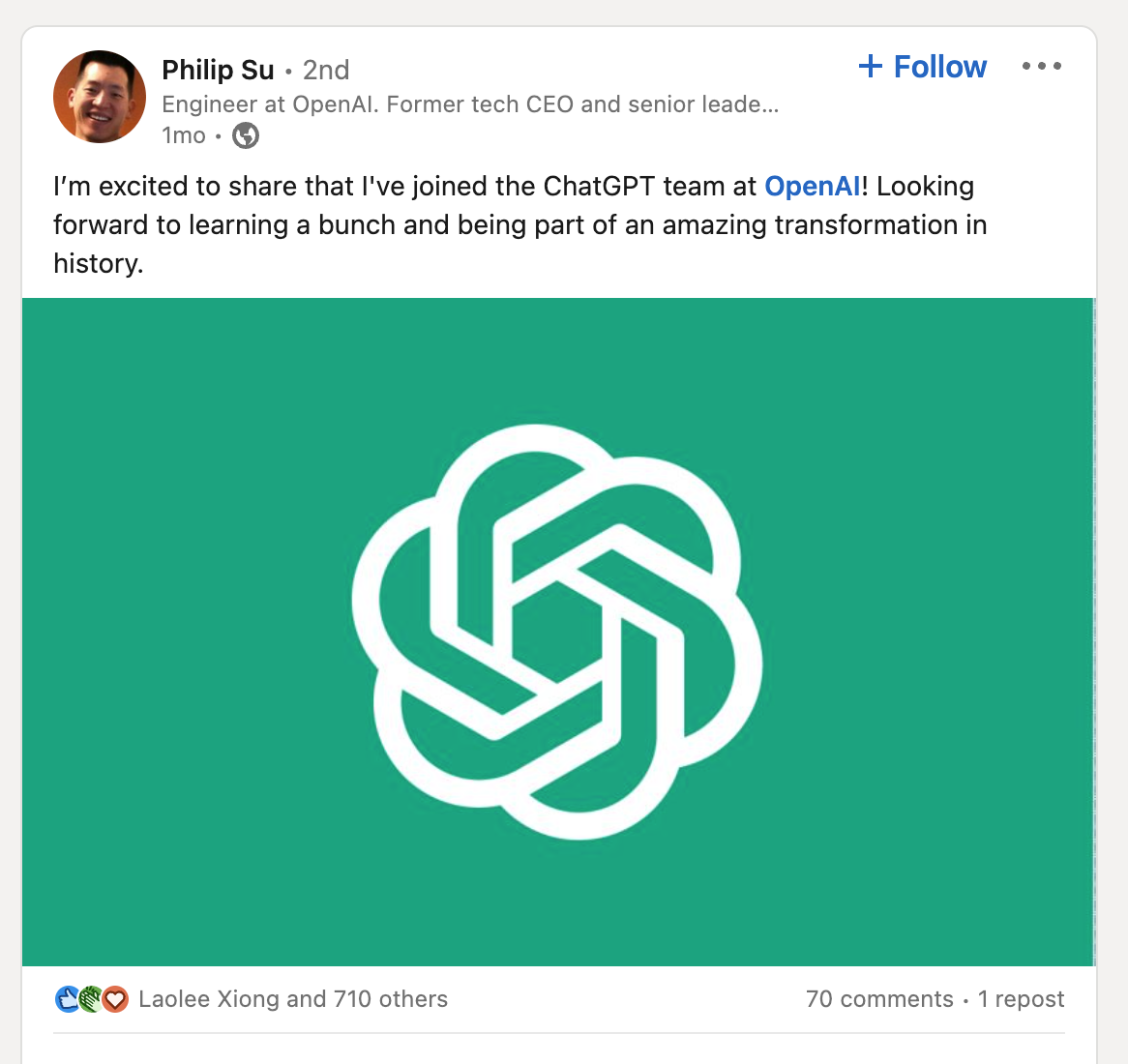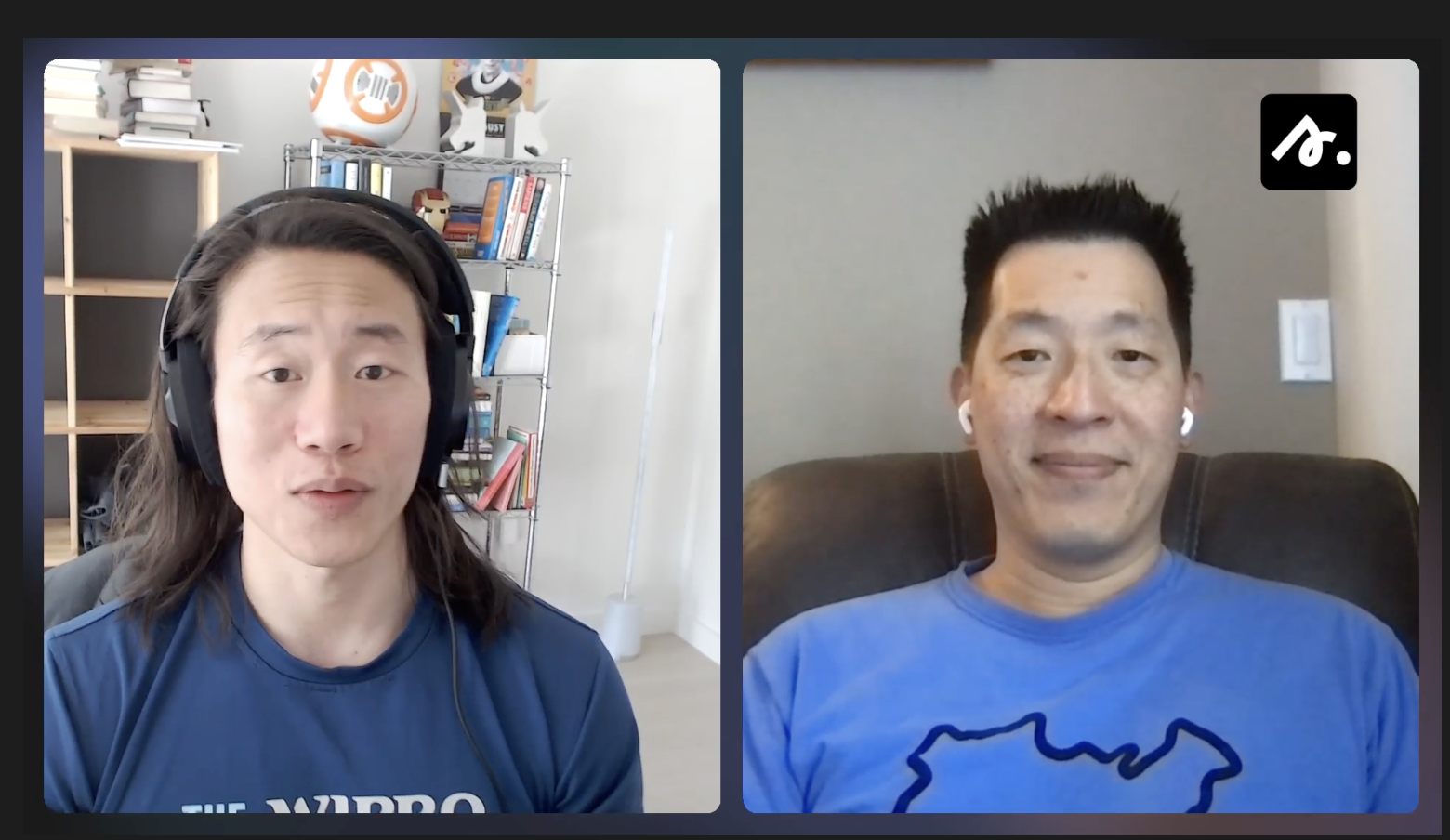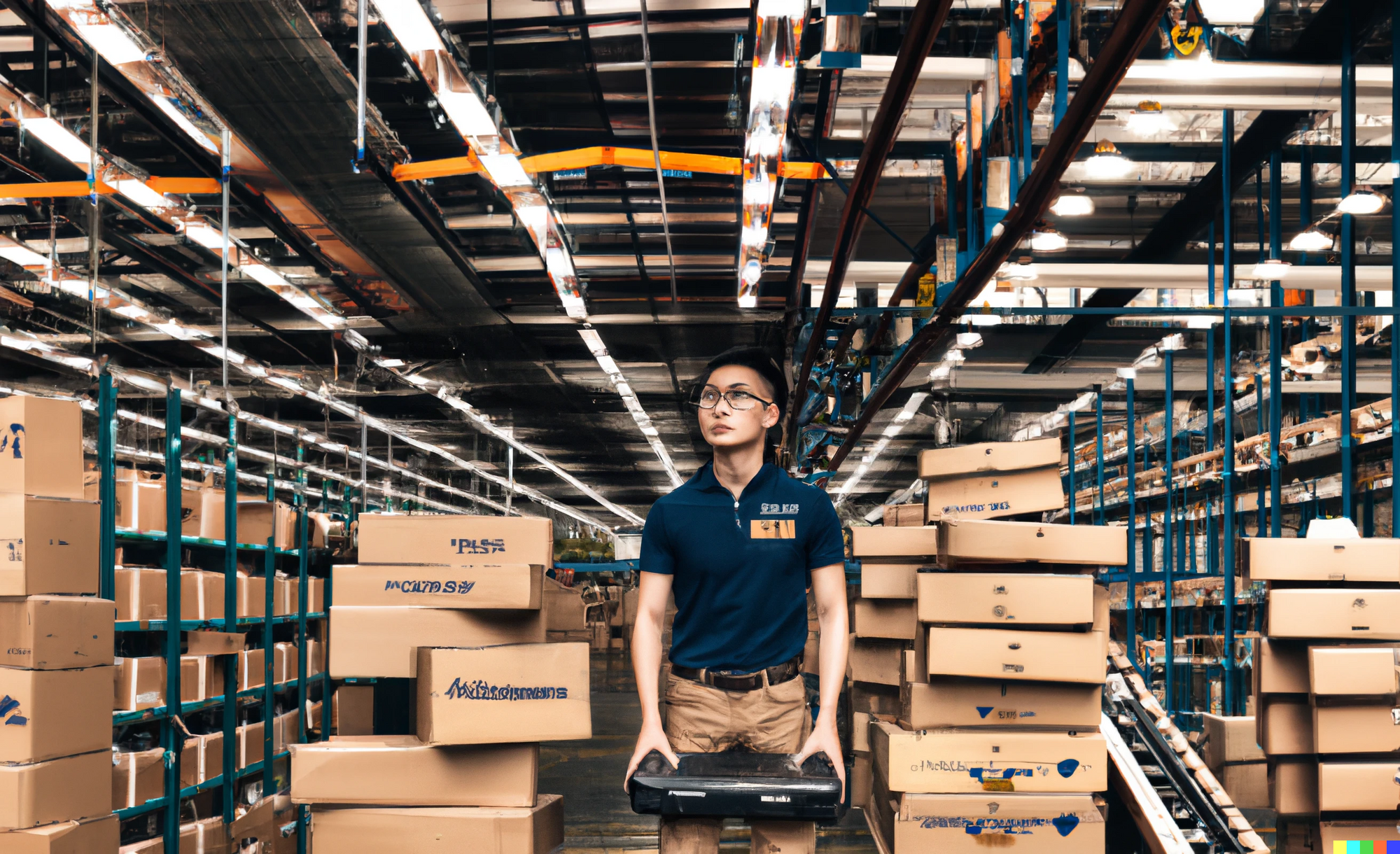I'm headed off to DC later this evening to accompany my wife as she meets with other members of a fancy committee. I'm sad I won't get to meet Lady Gaga or Shonda Rimes personally but hopefully she'll have some fun anecdotes to share with me.
Nearly a year ago, I shared the story of Philip Su, the longtime Microsoft and Facebook engineering leader who experienced severe burnout, spent many a number of months in an aimless depression before spending 6 weeks working 11 hour shifts 6 days a week for Amazon as a warehouse associate, an experience he then documented in a podcast called Peak Salvation.
Many of you joined this newsletter from this article, which made the rounds on Hacker News—garnering a lot of negative responses and accusations of "poverty tourism". Still the upvotes and signups tell me it struck a chord with many of you.
Around that time, Philip wrote about his struggles interviewing for technical positions as he tried to re-enter the work force:
One particularly low point happened when I interviewed with Apple after being out of tech for more than a year. I tried to mumble and explain a few things about why I had left the industry, and what I hoped to do as an individual contributor on one of their small teams. At the end of the interview, the interviewer revealed that we had met previously. Apparently, when we first met, I had been the Site Director of Meta in London, reporting to the CTO; we had declined to offer this person a job because we didn't feel he qualified for an individual contributor role on the team. Now he was interviewing me as the lead of the team I wanted to join.
I felt so ashamed. It's hard to describe how mortifying this was, unless you've experienced a fall of similar altitude.
Fortunately, this story does have a happy ending, with Philip announcing a few weeks ago that he'd be joining OpenAI as an engineer on the ChatGPT team, an area that's part of his core interests in robotics, automation, and sentience.

In celebration of Philip's new role, this issue has us taking a look back at our extended conversation from September 2022. Please enjoy this blast from the past and feel free to click into #120 and #121 for more:


The pressures of leadership
By the time it grew beyond twenty employees, I found many things about the mantle of leadership overwhelmingly stressful. One of my biggest concerns was how to make payroll. Though the nonprofit was funded generously by the Bill & Melinda Gates Foundation, I found it a profound burden to be the primary person responsible for raising future funding. And ultimately, when you lead a team or a company, failures are all either directly or indirectly attributable to you, especially if you have a strong personal sense of responsibility and accountability. (More in Part 1)
On "early" retirement
I think most people who dream of retirement think that it's going to be awesome. And it was—for about a month. I skied on weekdays, shopped at Target at 11am with nobody there, and played video games. But after several months of pursuing various hobbies as my whims and interests—all the things which people who aspire to retire young might look upon with envy—I felt unfulfilled. I became unmoored, set adrift in a sea of theoretical possibility only to drown in unbounded optionality. Novelty and excitement turned into a spiraling vortex of depression as I began to wake up sometimes at noon, sometimes 2pm, and on the rare occasion even getting out of bed at 6pm. (More in Part 1)
New employee carer packages
Amazon knows the job is hard. When you join as a warehouse associate, the swag they give you on the first day is a gallon-sized Ziploc bag with a heat and ice pack, one tear-away package of sports drink mix, one cloth COVID mask with an Amazon logo on it, and some kind of pain reliever medication. What do those four items tell you? “Get ready for pain”. (More in Part 1)
Life as an associate
It's a huge warehouse. There’s the clacking of machines, the smell of machine oil, and concrete flooring everywhere. You enter through the front gates through security, through these huge metal bars. You scan your card at the time card machine, and then your team has a morning standup.
The manager tells you what's special about the day, how many packages you're moving, and then you get your job assignments via this whiteboard. You find out where you're assigned to, and then you go to that spur, the place where packages come out. (More in Part 1)
The treadmill of achievement
I honestly found school to be a lot easier than some of my peers and that reinforced this pleasure in succeeding. The moment I graduated and started working full-time at Microsoft, I immediately missed the sense of how I was doing. Who's going to tell me if I’m getting an A or a B?
I quickly gravitated at work toward asking, “What does my review say? What is my level of progression in this company? Am I moving ahead?” I had gotten so used to this idea that quantifiable measurements by people outside of me would tell me how I was doing. I needed to be told all the time that I was doing well. (More in Part 1)
Putting playtime on the calendar
When I was leading the London office for Facebook, I was going to evening events, recruiting people, and I was giving tech talks in the evening. I was working all day and one day, my then seven year old son came into the room. We had bought a little Norse chess set and he asked if we could play sometime. I said, sure thing, no problem. And as a seven year old, he said "Can you put it on your calendar?"
That was such a moment of a mirror being held up to me of “Wow, something has gone wrong”. When I say to my son we'll play chess, his first response is to be skeptical and to say, "can you put it on your calendar?" That really tells you where your priorities are, right? And so that moment for me was very sobering. (More in Part 1)
Learning to confront negative emotions
I was quite skeptical and resistant, but after I began seeing [a therapist], I realized that talking to another person could help me think about my own blind spots, as well as to process difficult emotions so that I wouldn't be so much driven or motivated by them. I think I would have benefited earlier to be honest, but I had a real reluctance to it that I think was rooted in my East Asian upbringing.
As a teenager and young adult, I thought emotions were not to be trusted, that they were volatile and that channeling a Spock-like mindset was what would help me succeed.My view then was "Why experience or think about negative things? If you're not going to be able to change the past, you should just look forward and make the future better." (Read more in Part 2)
Physical labor can be a salve across classes
As my mood improved week over week, I wondered whether the emotional benefits of joining Amazon were only possible because I did not need the job. That was until I met Martin, another associate who joined Amazon for the same reason: because he was depressed and needed to get his butt off the couch.
This was a guy who tried desperately on many days to work up the energy just to sign into his Uber Partner app, much less get off the couch, into a car, and drive — drive people, people who talk, people who complain. A man for whom this job is not a passing whim. My idea of deliberately seeking the most grueling period of an already-unpleasant job was not a just play of the rich, but a common thing. (Read more in Part 2)
How work makes life real
By facing the reality of what will soon become the most commonly held job in America, I wouldn’t go as far as to say I was happy, though I was certainly no longer depressed. But things definitely felt a lot realer. Days were not spent worrying about whether I was too old for tech, wondering whether I could even hold a job anymore without collapsing into my depression and giving up.
Instead, my days were real.
Time was real: first, the urgent need to be somewhere or else; then the realization upon accidentally glancing at your watch that it wasn’t even 7:15 yet, that morning break was still two hours away and you had only worked forty-five minutes so far. The work of your hands, the pleasure of rest, the relishing of food: it was all real. And real saved me from the world of the abstract navel-gazing that I was trapped in, a “man of leisure” revealed to be more a “man of purposelessness” or a “man of loneliness.” (Read more in Part 2)
—Jason

Recent Letters





